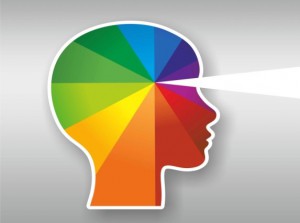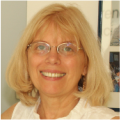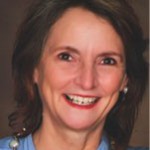2015 Eye-Gaze and Brain Computer Interface AAC: Therapeutic Strategies & Treatment Efficacy

Eye-Gaze and Brain Computer Interface AAC: Therapeutic Strategies & Treatment Efficacy
Friday & Saturday, November 6-7, 2015
Crowne Plaza Pittsburgh South, Pittsburgh, PA
Continuing Education Credits (CEUs) offered
Registration Now
This conference will present evidence-based augmentative and alternative communication (AAC) therapeutic interventions for using eye-gaze or brain computer interface (BCI) as access methods.
Day One morning will offer a review of preferred practices for meeting the training, treatment and progress monitoring needs of individuals who have been recommended eye-gaze or BCI access methods for AAC, including the needed supports for family members and caregivers who must be trained as system operators and/or communication partners. Evidence-based treatment protocols for individualizing eye-gaze and BCI access according to specific medical diagnoses also will be reviewed and illustrated. Steps and tips to determine the effectiveness of treatment will be presented.
Featured Luncheon Speaker: Margo Broehl, Esq., AAC Institute Board of Trustees member and chief legal counsel for PRC will discuss efforts to continue to improve SGD funding and reimbursement for services after the recent decision by the Centers for Medicare and Medicaid Services (CMS) to remove the capped rental, eye-gaze and locked system policies. Why we still need to “Ask Me Why I’m Not Talking”.
The afternoon program will give participants the opportunity to rotate among four concurrent “eyes-on” sessions conducted by major manufacturers offering eye-gaze as an access method to a speech-generating device (SGD) or other computer. Representatives will demonstrate training, intervention strategies and teaching techniques specific to their product line. Attendees will experience and explore the eye-gaze systems in an intimate, user-friendly environment. Day One will conclude with a panel discussion with the manufacturers’ representatives answering audience questions; with the option to schedule a 1:1 meeting with a representative to finish the day or join in a networking reception.
Day Two offers a choice among three seminars: 1) a demonstration and overview of BCI access and the most current available BCI products and clinical services; 2) an overview of data logging and language activity monitoring (LAM) and the launch of the upgraded AAC Performance Report Tool (PeRT); 3) an update on eye-gaze issues for children who use eye-gaze access. Product and training materials from a variety of companies will be available in the seminar rooms. Attendees will leave the conference fully informed and able to identify evidence-based interventions for treating clients who need eye-gaze or BCI access for AAC.
Learner Outcomes
- Identify and describe three (3) barriers that must be controlled to improve an individual’s learning trajectory for using eye-gaze or BCI as an alternative access method for AAC.
- Identify and describe three (3) procedures that will support training and treatment for an individual recommended an eye-gaze or BCI as an access method.
- Identify three (3) performance measures to track the effectiveness of your treatment in building the operational, linguistic, social and strategic competence of individuals using eye gaze or BCI as an access method.
- Identify two (2) features/resources that influence treatment effectiveness for two (2) different eye gaze technologies/manufacturers.
- List three (3) factors to consider when training an individual and system operator on a BCI system.
Who Should Attend: Speech-language pathologists, assistive technology specialists, occupational therapists, neurologists, health care providers, health insurance providers, special education instructors, skilled nursing facility staff, home health aides, paraprofessionals and individuals with disabilities and/or their families who are exploring eye-gaze access for AAC.
Time Ordered Agenda
Friday, November 6th
8:00 am Registration and continental breakfast
8:30 am Meeting client & family training, treatment and monitoring needs for eye-gaze and BCI users
Presented by Dr. Katya Hill, Ph, CCC-SLP
9:15 am Evidence-based training strategies and measuring treatment effectiveness for eye-gaze
Presented by Michael O’Leary, MS, CCC-SLP
10:45 am* Morning break
11:00 am Concurrent Eye-Gaze Rotation #1 (Each concurrent session 50 min long with 10 min to rotate)
12:00 pm Luncheon: More work to improve SGD funding and billing codes, Margo Broehl, Esq.
1:00 pm Concurrent Eye-Gaze Rotation #2
2:00 pm Concurrent Eye-Gaze Rotation #3
3:00 pm* Concurrent Eye-Gaze Rotation #4
4:00 pm Panel Discussion, Q&A with AAC eye-gaze equipment manufacturer representatives
5:00 pm Schedule a 1:1 meeting with an AAC manufacturer’s representative until 7:00 pm
5:30-7:00 Join us for networking in the hotel lounge
*Pick up your morning and afternoon coffee/tea and snack before starting your session.
Saturday, November 7th
8:30 Continental breakfast
9:30 Concurrent Sessions (Choose one)
- Eye-Gaze or BCIs for patients who are locked in- Jane Huggins and Michael O’Leary (Carnegie Room)
- Data Logging Consortium Meeting: Eric Nyberg and Katya Hill
- Eye-Gaze intervention for children: Evelyn Meinert
Noon Adjourn
Session Descriptions
Meeting client and family training, treatment and monitoring needs for eye-gaze and BCI access AAC
Dr. Hill will present issues that must be controlled by the clinical team to improve the effectiveness of an individual’s ability to use eye-gaze and/or BCI as an access method and identify common barriers that limit treatment effectiveness.
Evidence-based training strategies and measuring treatment effectiveness
Michael O’Leary, speech-language pathologist at ICAN™ Talk Clinic, will discuss evidence-based intervention strategies and techniques to support the training and short- and long-term treatment needed for individuals who rely on eye-gaze or BCI as an access method. Case study examples will be used to demonstrate how treatment effectiveness was measured.
Concurrent sessions with eye-gaze AAC manufacturers (4 sessions)
Learn therapeutic techniques directly from representatives of major AAC manufacturers who offer eye- gaze access. Representatives will identify, describe and demonstrate features available on their speech generating devices or computers that support eye-gaze access training and build skills using eye gaze as an access method. Available company resources and technical support will also be discussed. List of participating manufacturers is posted on www.aacinstitute.org
Eye gaze and BCIs for patients who are locked-in
Dr. Jane Huggins and Michael O’Leary will discuss the current BCI research base and status of BCI products. A BCI system will be demonstrated with a volunteer. Procedures and factors to consider to support training, treatment and monitoring changes will be discussed.
Data Logging Consortium meeting
Dr. Eric Nyberg, creator of Watson and Dr. Katya Hill have organized a Data Logging Consortium to standardize a logging format and analysis process that integrates the principles of language activity monitoring (LAM). The newest version of PeRT, a log file analysis tool will be demonstrated. Join the discussion and consortium of manufacturers, researchers, linguistics and clinicians.
Eye-gaze intervention for children
Evelyn Meinert will discuss treatment procedures for building operational, linguistic, social and strategic competence for children using eye gaze. Individualizing treatment protocols for children with cerebral palsy, Rhett’s syndrome, and other severe physical disabilities will be presented.
Workshop Director and Presenters
WORKSHOP DIRECTOR
GUEST SPEAKER
SPECIAL GUEST BCI PRESENTER
ICAN TALK CLINICIANS
Evelyn Mariperisena-Meinert, MBA, MA, CCC-SLP earned her Master’s degree in communication science and disorders at the University of Pittsburgh and specializes in AAC and bilingual speech-language disorders. She provides outpatient services at the ICAN Talk Clinic and the PLEA School. She is coordinator of the ICAN Talk annual AAC Summer Camp and participated in an AAC evaluation project for significantly speech-impaired children in Mallorca, Spain in 2013.
Ms. Mariperisena-Meinert has the following relevant financial relationships to disclose: she is an employee of ICAN™ Talk Clinic. She has no relevant non-financial relationships to disclose.
Michael O’Leary, MS, CCC-SLP holds a Master’s degree in speech-language pathology from Loyola University, Maryland and a Bachelor’s degree in speech-language pathology from Clarion University of Pennsylvania. He previously worked for the Anne Arundel County Public School system in Annapolis, Maryland. He provides outpatient therapy at the ICAN Talk Clinic and at the PLEA School, which specializes in educating children with severe learning and behavioral disorders.
Mr. O’Leary has the following relevant financial relationships to disclose: he is an employee of ICAN™ Talk Clinic.
He has no relevant non-financial relationships to disclose.
AAC PRESENTERS
Chip Clarke, MS CCC-SLP co-founded Assistive Technology Works, Inc. in 1997, which has evolved into an AAC equipment distributor for a variety of assistive technology and AAC products. Chip provides client and clinician support throughout the Mid-Atlantic region, and for the past 5 years has also served as consultant to Prentke Romich Company, developing their eye-gaze technologies, including the EcoPoint and NuEye systems.
Mr. Clark has the following relevant financial relationships to disclose: he is an owner of Assistive Technology Works, a distributor of PRC. He has no relevant non-financial relationships to disclose.
Nancy Cleveland, RN is the Medical Director of LC Technologies and a nurse with more than 25 years experience in the field of eye tracking and disabilities. She began in 1988 as a member of the LC Technologies development team that created the first Eyegaze Communication System, and continues to participate in ongoing product development. She has presented over 200 workshops and lectures around the world on the use of eye-gaze systems for people with disabilities and provides extensive training and support for an international team of Eyegaze Edge experts.
Ms. Cleveland has the following relevant financial relationships to disclose: she is an employee of L.C. Technologies.
Ms. Cleveland has no relevant non-financial relationships to disclose.
Darlette Navrotksi, MA, CCC-SLP is the Prentke Romich Company (PRC) regional consultant for Western Pennsylvania and Upstate New York whose role is to educate, train and support individuals who rely on AAC. Darlette has a background in Linguistics and experience in teaching English as a second language. She works with clients across the lifespan with severe communication disorders.
Ms. Navrotski has the following relevant financial relationships to disclose: she is an employee of PRC. She has no relevant non-financial relationships to disclose.
Eric Nyberg, PhD is a professor in the Language Technologies Institute in the School of Computer Science at Carnegie Mellon University. Dr. Nyberg has made significant research contributions to the fields of automatic text translation, information retrieval, and automatic question answering pioneering the Open Advancement of Question Answering, an architecture and methodology for accelerating collaborative research in automatic question answering. In 2012, Dr. Nyberg received the Allen Newell Award for Research Excellence for his scientific contributions to the field of question answering and his work on the Watson project.
Mark Sauka, B.S, M.S. is the Regional Sales Consultant for Tobii Dynavox for Western Pennsylvania and West Virginia. He earned his bachelor’s degree in Health Science from Slippery Rock University and his Master of Science degree in Athletic Training from California University of Pennsylvania, which he utilized in outpatient physical therapy settings for seven years before joining DynaVox six years ago as an AAC Sales Consultant.
Mr. Sauka has the following relevant financial relationships to disclose: he is an employee of Tobii Dynavox. He has no relevant non-financial relationships to disclose.
Hotel accommodations
For reservations at the Crowne Plaza Pittsburgh South at our discounted event rate, please phone Colleen Rodgers
at 412-347-0351 or email: crodgers@cppghsouth.com. You may also use the E-Booking link
Conference Registration Fees:
1.5 Day Program includes all conference sessions, materials, breakfasts, Friday luncheon and breaks:
_______ $175.00 Professionals (per person)
_______$125.00 Individuals with disabilities, their parents and caregivers (for 2 persons)
_______ $ 75.00 Students with valid ID (limited seats available)
One Day Attendance Option (Friday, Nov 6):
______ $125 Professionals (per person)
______ $ 75 Individuals with disabilities and caregivers (for 2 persons)
______ $ 50 Students with valid ID (limited seats available)
Half-Day Attendance Option (Saturday, Nov 7 ONLY)
______ $50 All attendees (per person)
Registration
-
Pay by check or credit card: Fill the form and mail, fax: 412-402-0909, or e-mail completed application form as a scanned PDF file to: scarney@aacinstitute.org. Credit card payment will not be processed without an accompanying application form.
-
Cancellation policy: Full refund for any cancellations received prior to October 26th.



